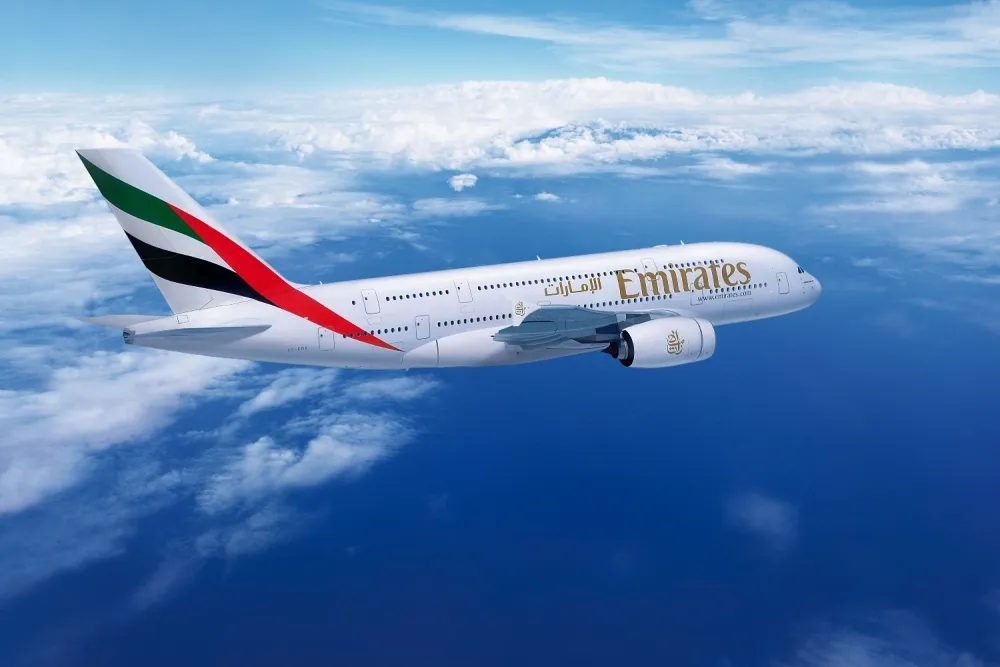
Emirates Chief Pleads For Re-Engined A380
Jun 17, 2023

Emirates' chief executive has voiced a strong appeal for the development of a re-engined version of the A380 aircraft. The airline's commitment to the superjumbo has been unwavering, as it continues to operate a significant fleet of the iconic model. The executive argues that advancements in engine technology could enhance the aircraft's fuel efficiency and reduce operational costs, making it more viable in a competitive market. This plea underscores Emirates’ belief in the A380's potential and the need for innovation to ensure its relevance in the evolving aviation landscape, particularly as airlines strive for sustainability.
In a recent development, Emirates' Chief Executive, Tim Clark, has made a compelling plea for the re-engining of the Airbus A380, the world’s largest passenger aircraft. As the aviation industry continues to evolve, the demand for more efficient and environmentally friendly solutions has grown exponentially. The A380, once hailed as a marvel of engineering, has faced challenges in maintaining relevance amidst rising fuel costs and increasing competition from more agile aircraft. This article explores the implications of re-engining the A380 and what it could mean for Emirates and the broader aviation market.
The Case for Re-Engining the A380
Tim Clark has been a long-time advocate for the Airbus A380, emphasizing its unique capabilities in handling passenger volume and providing an unparalleled travel experience. However, with changing market dynamics, he recognizes the urgent need for modernization. Re-engining the A380 could yield several advantages:
- Improved fuel efficiency
- Reduced carbon emissions
- Enhanced performance and range
By equipping the A380 with newer, more efficient engines, Emirates could significantly reduce operating costs while also aligning with global sustainability goals. This move would not only benefit the airline but also contribute positively to the environment.
The Economic Impact of Re-Engining
The economic implications of re-engining the A380 are substantial. Airlines worldwide are under pressure to minimize operational costs and enhance profitability. The potential cost savings from improved fuel efficiency cannot be overstated. Below is a table illustrating the projected fuel savings and operating costs associated with re-engining the A380:
| Parameter | Current A380 Performance | Projected Performance with Re-Engined A380 |
|---|---|---|
| Fuel Efficiency (L/100 km) | 3.0 | 2.5 |
| Annual Fuel Cost ($ million) | 150 | 125 |
| Carbon Emissions (tonnes) | 400,000 | 320,000 |
As shown in the table, re-engining could result in a 16.67% reduction in fuel costs and a significant decrease in carbon emissions, making a strong business case for Emirates to consider this upgrade.
Challenges and Considerations
While the benefits of re-engining the A380 are clear, there are challenges to consider. The upfront costs of developing and retrofitting new engines can be substantial. Additionally, the logistical challenges of modifying existing aircraft must be carefully managed. Airlines must also weigh the market demand for larger aircraft against the growing preference for smaller, more fuel-efficient jets.
Moreover, the aviation industry is seeing a shift towards more sustainable practices. As airlines strive to meet environmental targets, the focus on fuel efficiency and carbon neutrality is becoming paramount. Emirates must ensure that investing in the A380 aligns with its long-term sustainability goals.
Industry Reactions and Future Prospects
The response from the aviation industry regarding Clark’s plea has been mixed. Some industry experts agree that re-engining the A380 could revitalize its market presence. Others argue that the future may lie in more nimble aircraft that can adapt to fluctuating passenger demands.
Nonetheless, Emirates remains committed to the A380, having invested heavily in this aircraft type. The airline has a vested interest in ensuring that its fleet remains competitive. By enhancing the A380's performance with new engines, Emirates could secure its position as a leader in long-haul travel.
Conclusion
Tim Clark's appeal for a re-engined Airbus A380 underscores the need for innovation within the aviation industry. As airlines navigate the complexities of operational efficiency and environmental responsibility, the re-engining of the A380 could serve as a pivotal solution for Emirates. The potential benefits in terms of fuel savings, reduced emissions, and improved performance present a compelling argument for the future of the A380 in a rapidly changing market.
In summary, the re-engining of the A380 could be a game-changer not only for Emirates but for the entire aviation sector. As the industry continues to evolve, embracing new technologies and modifying existing aircraft will be essential for staying competitive and meeting the demands of modern air travel.
Related Articles

Explore Thailand: The Best Islands to Visit for Paradise, Adventure, and Relaxation

The Ultimate Guide to the Best Islands in Thailand for Your Next Getaway

Do babies need passports? How to get a passport for a newborn

How to get a U.S. passport fast: here’s how to expedite the process

What is Mobile Passport Control: 5 reasons why you should use it

SENTRI vs. Global Entry: A detailed guide

Do you need a passport to go to the Bahamas? Let’s find out

Do you need a passport to go to Mexico? A detailed guide

Do you need a passport to go to Canada? We got the answer

Do You Need a Passport for a Cruise: An Essential Travel Guide

Booster Seat Requirements: All the Rules to Follow in Your Rental Car

What Are the World’s Most Powerful Passports, and How Does Yours Rank?

How to Take a Passport Photo at Home: A Helpful Guide

You've got to have heart! Southwest's new livery

Your opinion: Should water be free on low cost carriers?

Young women bolder than guys as solo travellers
